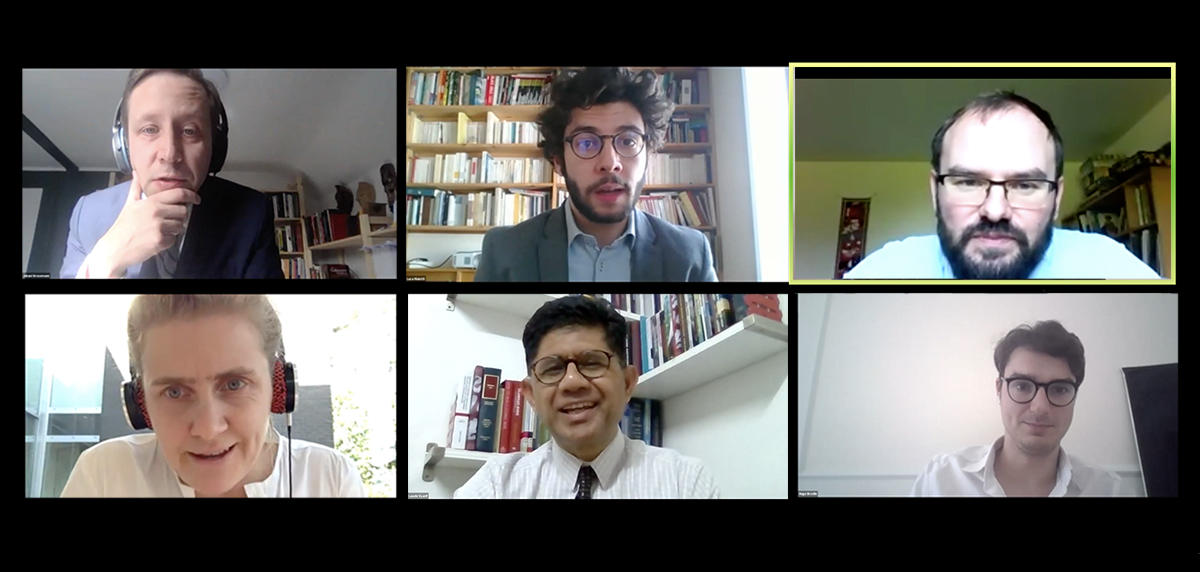Protecting mineral supply chains from green corruption risks

Companies dealing with metals and minerals cannot avoid corruption risks, which plague practically every extractive sector at every phase of development, every country and every stage of the supply chain. Both industrial and artisanal mining are vulnerable, though in different ways.
The risks are set to grow as demand balloons for metals such as cobalt and copper that are needed for the green energy transition. The impact of corruption on a producing country’s development is deep and systemic. And it opens the gates to a flood of other risks, from environmental degradation to human rights abuses and conflict financing. How to deal with it?
That was the question at the heart of a virtual discussion on transparency and accountability in mineral supply chains hosted by the OECD and Green Corruption team of the Basel Institute on Governance on 23 February 2021. Attended by 120+ participants, the event brought together expert perspectives from standard-setters, NGOs and industry.
How companies can protect themselves and their supply chains
Since its adoption in 2011, the OECD Due Diligence Guidance for Responsible Supply Chains of Minerals – now in its third edition – has been the gold standard in recommendations to identify and mitigate supply chain risks including corruption. Trade associations with serious responsible sourcing commitments have based their own standards on these guidelines. One example is the responsible sourcing standard of the London Metal Exchange, which consulted widely to adapt the OECD guidance to industry specificities, as well as to the growing legal requirements on anti-corruption and human rights due diligence.
The OECD’s forthcoming FAQs, which will be presented at the Forum on Responsible Mineral Supply Chains on April 26th, are designed to help companies use the OECD due diligence framework to address corruption risks. The publication covers 12 questions and answers on practical issues such as what to check for when conducting corruption risk assessments on high-risk suppliers and what to do if risks are identified at any point in the supply chain.
Panellists converged around the idea that protecting against corruption risks needs proactive management. This may include:
- understanding vulnerabilities and identifying red flags with the help of NGOs, open-source information and OECD guidance (for example on artisanal mining, child labour or cobalt and copper sourcing in the DRC);
- following the money, by conducting targeted financial audits and analysing payments to governments disclosed in Extractive Industries Transparency Initiative (EITI) reports;
- active reporting on corruption risks throughout the supply chain and not waiting for hard evidence or convictions before acting. The biggest corruption risk is before a conviction, not after, as the case of Glencore and corruption risks in the Congo illustrates;
- engaging with other companies and stakeholders through Collective Action, in order to achieve stronger leverage and solve shared corruption and due diligence challenges;
- the inclusion of specific anti-corruption clauses in contracts that may give buyers the right to audit revenue flows that raise concerns;
- systems to improve traceability and transparency, which may include blockchain technologies – although companies should keep in mind that there is no simple technological fix.
How countries can cooperate to improve standards in mining
Corruption in mining has much in common with corruption in forestry and other natural resource sectors. Studies in Indonesia and elsewhere show the same old tricks: bribery, embezzlement, money laundering, tax fraud, undisclosed royalty payments and non-compliance with regulations.
There is widespread evidence of rampant petty corruption on the ground, in part due to the use of intermediaries and high levels of discretion of local officials, and of obscene grand corruption schemes between political and business elites – the Gertler and Steinmetz cases being only the most high-profile.
Successful investigations and prosecutions are few and far between (why, is something the Basel Institute is working to better understand). Prevention is key, and this needs increased cooperation in particular:
- between the public and private sectors, especially in proactive information-sharing between companies and financial institutions with law enforcement;
- between countries, through a carrot-and-stick combination of international pressure, investment from countries that value transparency and accountability, and support for strengthening legal frameworks and capacity;
- between law enforcement agencies, as money laundering schemes cross many borders and green corruption investigations often arise from information transmitted spontaneously by foreign law enforcement counterparts;
- with local civil society representatives that dare to speak up against corruption in their country, because ultimately change to a deeply corrupt political context needs to come from within.
A basic step to improve international cooperation and harmonisation of standards – and avoid the “race to the bottom” in environmental, human rights and anti-corruption issues – is to implement the OECD Due Diligence Guidance into national and regional policies, as China did in 2015. There are concerns that the European Union’s proposed update to the 2006 Batteries Directive does not yet specifically include corruption risks highlighted in the Guidance – something which, as this panel discussion showed, is absolutely crucial to the integrity of mineral supply chains in all senses.
With thanks to our panel
- Louis Maréchal, Sector Lead, Minerals & Extractives, Centre for Responsible Business Conduct, OECD (moderator)
- Laode Syarif, Executive Director, Kemitraan and Former Vice Chairman, Corruption Eradication Commission of the Republic of Indonesia
- Elisabeth Caesens, Director, Resource Matters
- Hugo Brodie, Vice President - Sustainability, London Metal Exchange
- Luca Maiotti, Policy Analyst, Minerals Team, Centre for Responsible Business Conduct, OECD
Learn more about the OECD-Basel Institute Corrupting the environment series and register now for upcoming events on following the money (17 March) and applying behavioural insights to fight green corruption (14 April).



